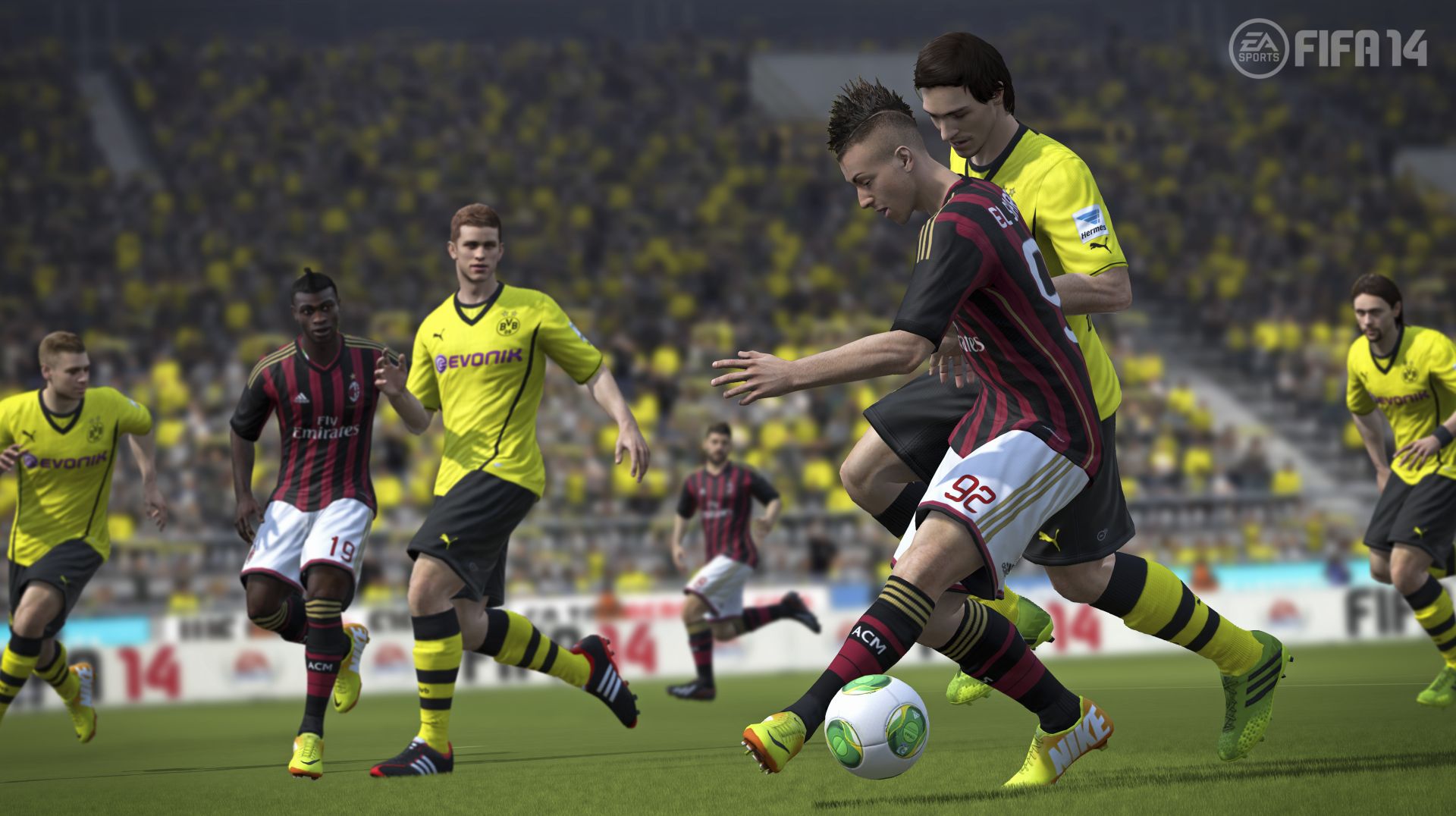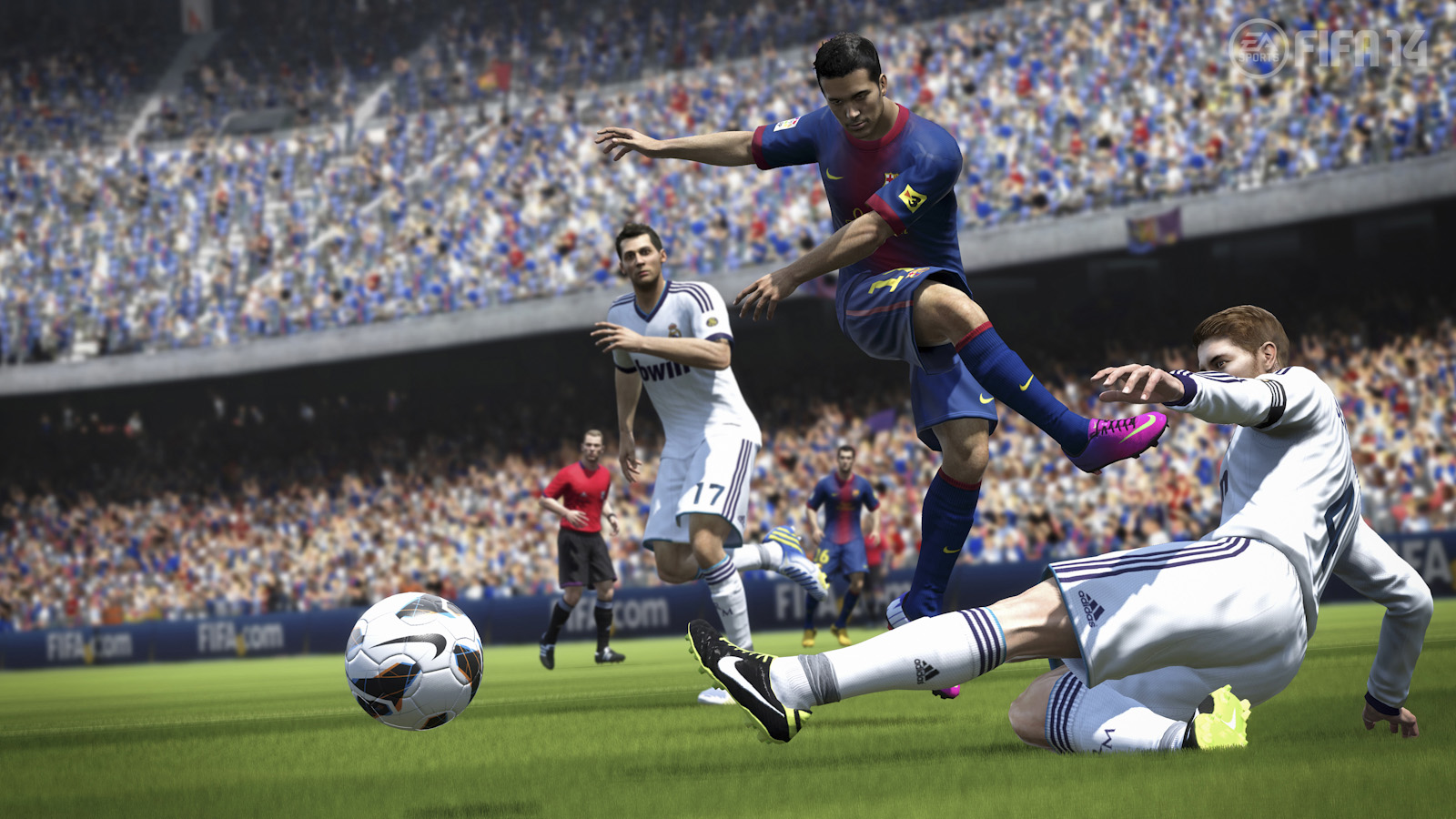Andrew Wilson has been named the new CEO of Electronic Arts, and in his first message he was careful to say that he will be following the strategy EA has laid out for the rest of the fiscal year. Still, it’s inevitable that Wilson’s attitude and approach to EA’s strategy will affect how he manages the company in the future.
When he was still executive vice president of EA Sports, the [a]list daily caught up with him at the E3 show to get his thoughts on the challenges of developing sports games designed to be played all year around on multiple devices. Wilson’s answers reveal something of his thinking about the importance of value, comprehensive services, and consistent excellence that are very important for EA going forward.
EA Sports has been a consistent star performer for EA, with key sports franchises like Madden Football and FIFA Soccer reliably racking up huge sales every year. More importantly for EA’s future, FIFA has been a poster child for the transition to 24/7/365 products. FIFA’s variety of offerings on different platforms has transformed it into a broad array of products and services. FIFA is the exemplar of how to transform a product into a very broad, successful franchise.
“I think that’s right,” Wilson agreed. “They achieved the balance of the provision of quality experiences and the choice of the consumer in how they want to partake in those experiences. That’s what it really comes down to: You build great content, you build great game experiences, you build great service, and then you give every gamer the ability to participate and partake in that service in a way that makes sense for them. You don’t force anything, you don’t drive anything, you just provide it. Through great quality, appropriate value, and excellent service, you achieve a balance that’s very positive to every gamer that interacts with it regardless of the amount they transact.”
The tricky part for many businesses has been that it’s not easy to take the model from one product and move it to another. The nature of the sport, the nature of the game can change the appropriate business models and where and when you ask for money. What works for FIFA doesn’t necessarily work for Madden or NBA or anything else. It’s not a similar audience or a similar sport. Creating a comprehensive model like FIFA is a tremendous task, isn’t it

“Yes it is,” acknowledged Wilson. “That’s the short answer to the question. But what you get right now is the construct of our studio has changed. When I got into this business, you bought a game for $40 or $50, you played it for two or three weeks, and then you put it on the shelf and you went and bought another one. That’s how you engaged. A game team would build to that model. They would would work tirelessly for 12 or 24 months, they would ship the game, they would go sit on the beach for three weeks of comp time, because you know crunch when I started this business was hard work. We slept at the studios back then. Then you would come back after three weeks, energized from having drunk far too much Corona beer, and you’d start again.”
The model is quite different now, Wilson acknowledged, and it’s oriented towards building product as and services like FIFA. “What happens now in the studios is you have rotating teams, so there’s one team who’s building the game now, another team who’s building the game for the future, because the the level of innovation that ‘s put into features now can’t be done inside of a twelve month period,” Wilson pointed out. “Then you have a third team that’s always thinking live service, and managing that live service regardless of which product that live service is attached to. You don’t get the kind of peaks and valleys that you once had. We see record online multiplayer game play days six months post-launch. This was unheard of.”
Wilson feels that it’s more than just great gameplay that makes a successful game, it’s offering a great value. “You think about paying $60 for a game, and you can play that game every day of your life for six months. If you started to parcel out the cost per minute of entertainment, it is tremendous, tremendous value,” Wilson said. “Games are cheap entertainment. If you have a commitment to great products and services.. here’s the funny thing. People will say, ‘Oh, that’s going to cost more, that’s a big investment.’ Guess what FIFA, Madden, NHL all had record years this year. They had record years at a time when the industry was facing some fairly substantial headwinds. They did it by virtue of a great game, great service, and a great value for money.”
The power of the EA Sports brand and the individual game brands is at work here as well, though. What mobile and free-to-play games have done, subtly perhaps, is erode the perception of how much a game should cost. Twenty years ago, if you wanted a new game you would go to the store and there would be a limited selection of new games for 40 or 50 bucks. Now, there are thousands of games on a wide variety of platforms and many of them you don’t have to pay a cent to start playing. In that sort of an environment, a trusted brand like a FIFA or a Madden has to make it easier to get people to pay $60. Of course, if you deliver a sub-standard game one year people will know about quickly and that will affect the sales.

That truth is not lost on Wilson. “In a world where social media provides an amplifier for positive or negative sentiment, the absence of a quality experience is known by more people more quickly than it ever has been before,” Wilson said. “By virtue of all that free-to-play stuff they can go and do — which by the way the nuance of free-to-play is that while you have an opportunity to play thousands of games for free, those games also give you an opportunity to spend thousands of dollars playing any one of them. So you compare that to the $60 you would otherwise pay for FIFA on Xbox 360, PS3, PS4 or Xbox One . . . Again, you get back to a value proposition.”
Wilson continued, “I think you’re right, there’s absolutely more choice. The barrier to exit, and the barrier to entry have changed. The barrier to exit is lower, the barrier to entry is high if you think you can go and try a bunch of other stuff for free. However, I think we have been successful because we didn’t focus on the transaction, we didn’t focus on the business model, we focused on making great games. In a world where social media is the amplifier, the positive sentiment has been our friend by virtue of providing great value for money and great value over time. This is more true now in our industry than it ever has been before.”
This holiday season there’s a lot of attention on next-gen titles, but the majority of revenue is going to come from Xbox 360 and PS3 games. How do you acknowledge the buzz about new consoles and yet still manage to maximize sales of titles for current-gen consoles
“These types of transitions provide both challenge and opportunity,” Wilson said. “At the very core, you have to build great games, whether it’s the current generation or the next generation, the games have to be awesome — or everything’s a wash. You don’t even reach the opportunity point — you lose before you get there. The reason we have all of our current generation products for EA sports on the floor this year is because they’re the best PS3 and Xbox 360 games we have ever made. You play them and you say ‘Holy crap!'”
“I think what gamers are going to find is, in a year when they may have expected us to phone it in, we’ve done exactly the opposite,” Wilson said. “The next part of that is, what happens if I buy that one and I want to upgrade later on Guess what — it all comes with you. You build a FIFA Ultimate Team on the current generation of platforms, it’s going to come with you to the next generation of platforms. We want that to be seamless. The reality is the games on Xbox 360 and PS3 this year are the best ones we’ve ever made.”

